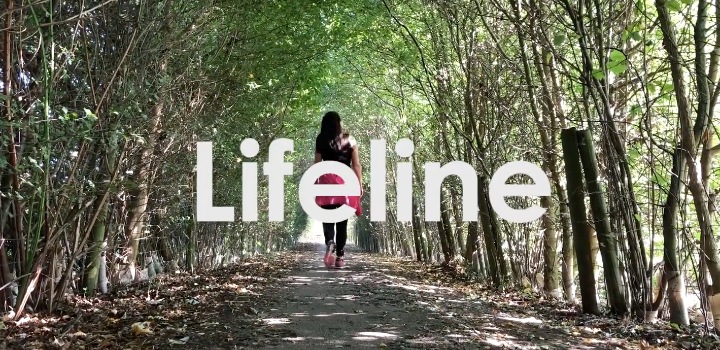Domestic abuse frontline staff reveal strain of work in lockdown
By: Communications

In the upheaval of Britain’s first national lockdown, one crucial sector of social care workers were largely overlooked – but new research from the University of East Anglia (UEA) brings their plight into focus.
With much of the country mandated to work from home in Spring 2020, key workers were not only seeing a heavier workload but were providing support for victims of domestic violence from their own homes. In exclusive interviews via video link, they spoke to UEA’s Prof Eylem Atakav about the pressures of conducting sensitive work within the sanctity of their private space, and the frustrations and limitations of providing such critical support in the circumstances.
‘There was no break. Staff were asked to bring very traumatic work into their own homes, often take to those stories into their bedrooms.’
‘It’s not just a job for any of us, we are technically a lifeline.’
‘I felt like I was only doing half a job, it made me feel really helpless and inadequate. I absolutely crumbled. It even gets to us sometimes.’
‘Vicarious trauma is real.’
Together with interviews from MPs, policymakers, charity workers and other experts in the field, Prof Atakav and Karoline Pelikan created the documentary film, Lifeline, to highlight the reality of providing support for vulnerable populations during lockdown, and the toll it took on those key workers.
According to the United Nations, ‘emerging data and reports from those on the front lines have shown that all types of violence against women and girls, particularly domestic violence, has intensified’ since the outbreak of COVID-19. It continues:
‘As COVID-19 cases continue to strain health services, essential services, such as domestic violence shelters and helplines, have reached capacity. More needs to be done to prioritize addressing violence against women in COVID-19 response and recovery efforts.’
Prof Atakav, a professor of film, gender and public engagement in UEA’s School of Art, Media and American Studies, has worked with parliamentarians, charities, and police forces across the UK, on issues related to gender-based violence and cultural identity. Her previous documentary, Growing Up Married, tackled child and forced marriage in Turkey, an issue she’s also investigated in the UK contributing to debates on the Child Marriage Bill in Parliament.
Prof Atakav said: “With COVID, we are all acquiring new emotions, and new ways of expressing them. We need to take time to understand each other’s stories so that we can become more empathetic and inclusive.
“As the brilliantly inspirational Michelle Obama reminds us, ‘When we share our stories, we are reminded of the humanity in each other.’ The film, I hope, will celebrate these stories, and highlight the great work being done by the sector in the most challenging of circumstances. Because, it’s not just a job for domestic abuse frontline workers, it’s a lifeline for those they support.”
Lifeline will launch online on November 25, to coincide with the UN International Day for the Elimination of Violence Against Women, known in the UK as White Ribbon Day.
The film will also be the focus of a Q&A roundtable on November 30 featuring MP Jess Phillips, who is the Shadow Minister for Domestic Abuse and Safeguarding, key workers who contributed to the film, and Prof Atakav and co-director Ms Pelikan. The online event on November 30 runs from 6.30pm to 8pm, and starts with an introduction from Prof Sarah Barrow, UEA Pro-Vice-Chancellor of the Faculty of Arts and Humanities. To register, visit: bit.ly/lifeline-event
To see a trailer of the documentary film, Lifeline, visit: https://vimeo.com/468072941
The full-length (18 minutes) film is here: https://vimeo.com/481664305
Related Articles

New Black Beauty book edition and animation launch
A new edition of Black Beauty has been officially launched at a Redwings-UEA event on 24 November, alongside a new animation feature voiced by Dame Joanna Lumley.
Read more
‘Octochamp’ undergrad completes Countdown challenge
Viraj Seelam, an undergraduate student from the School of Art, Media and American Studies, has joined the revered ranks of Countdown’s most competitive contestants, having won eight heats in a row and earned the title of ‘Octochamp’.
Read more
New documentary shows plight of migrant victims of domestic abuse
Thousands of victims of domestic abuse are falling through the cracks of the system, according to a new film from UEA.
Read more